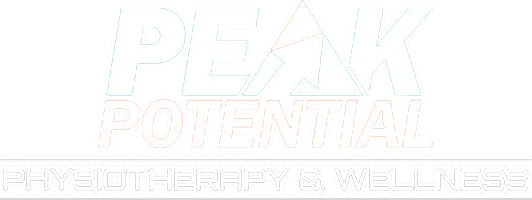Millions of American pull out their desk drawer or shuffle through their purse every day without thinking to find medication to treat an ache, pain, or even cold symptom. But, should we be heading straight to the medicine cabinet for pain relief?
It’s a question we get a lot this time of year . . . when everyone has stiff, sore joints from winter weather and too much sedentary time watching Netflix. Here’s one version I heard today:
“I don’t want to take any prescription pain medicine, but would the over the counter pills I have in my medicine cabinet help? It won’t hurt anything at least, right?”
Usually, when people ask this question in regards to joint pain or muscle soreness, they are asking about taking NSAIDs (non-steroidal anti-inflammatory drugs) – such as Ibuprofen or Naproxen. And there was a time when I too took these several times a week for a stiff joint, headache, or sore muscle after a workout.
Now, first of all, as physical therapists, we do NOT prescribe any medication (prescription or over the counter). However, I can present to you the benefits and some warnings that I think about before reaching for that bottle.
What do NSAIDs do?
As anti-inflammatory medications, NSAIDs alleviate pain by blocking inflammation. They are most frequently used to treat conditions such as arthritis, bursitis, and tendonitis – often the first line of medication used to relieve pain and reduce inflammation.
Since they are sold over-the-counter, they seem harmless, but both short term and long term side effects are becoming more evident.
Are there health risks?
The well-known risks of NSAIDs include increased the risk of heart attack, stroke and other cardiovascular complications. The heart health danger that NSAIDs present include blood clots, fluid retention, and increased blood pressure.
In addition, some studies indicate kidney and liver damage, as well as delayed bone healing. Some of these health risks obviously come with high doses used over a prolonged period of time.
Could they actually make my pain worse?
The NSAID weakens the intestinal wall, and causes inflammation to the small intestine. The result is decreased absorption and nutrition deficiencies. They are known to deplete iron, folic acid, vitamin C, and zinc leading to a weakened immune system.
Additionally, a damaged intestinal wall results in “leaking” of foreign substances into your bloodstream that can actually increase inflammation in your muscles, joints, and tendons over time.
Should athletes take NSAIDS to recover?
When athletes experience soreness from training, it’s common to grab some Ibuprofen for quick relief. It might make sense since small tears occur in tendon and muscle tissue from training triggers the bodies natural inflammatory response.
When this occurs, new tissue is laid down and your muscles and tendons become stronger. So, chronic NSAID use can block the normal response necessary for repair. In addition, several studies find that masking pain has minimal performance benefits and even increases injury risk.
What could I do instead?
The desire for a quick fix makes it easy to rely on NSAIDs for pain relief. And I do understand that sometimes it is necessary to decrease inflammation quickly in order to tolerate exercises and activities that will promote healing. I don’t believe these occasional and temporary uses are going to cause long term damage.
However, the use of medication doesn’t get to the root cause of the problem and that pain will just keep coming back. You must find a way, to get to the bottom of the problem for true relief and recovery. Physical Therapy can accelerate injury recovery and proves effective as a long-term strategy. While not a quick fix, they also prevent future injuries through retraining proper movement patterns, strength, and mobility.
If you find that you have been using any medication frequently or for a long period of time, talk to your physician or physical therapist about alternative methods for pain management. You have many options other than your medicine cabinet.
To discuss your pain management strategy with a Doctor of Physical Therapy, request a phone consultation (at no cost to you) TODAY! They can help ease your concerns and give guidance in deciding what the next best step is for you. Click the link below to get started:


